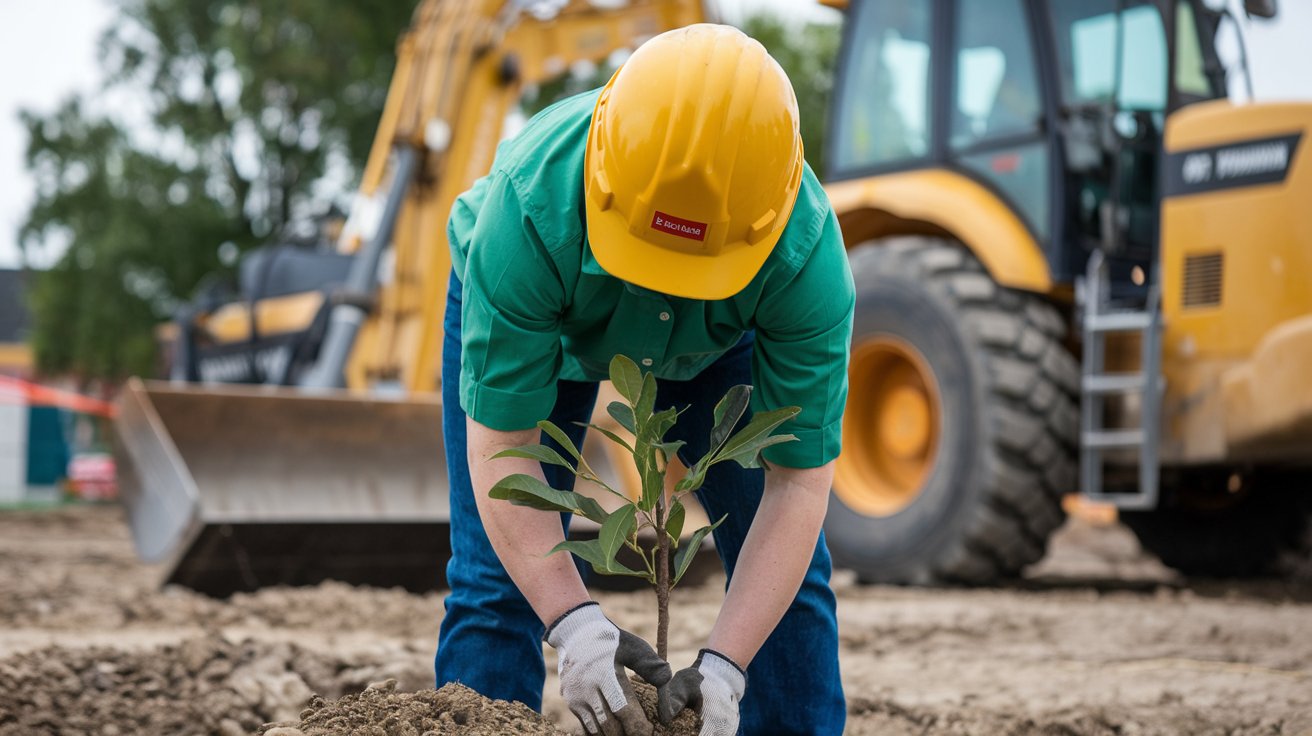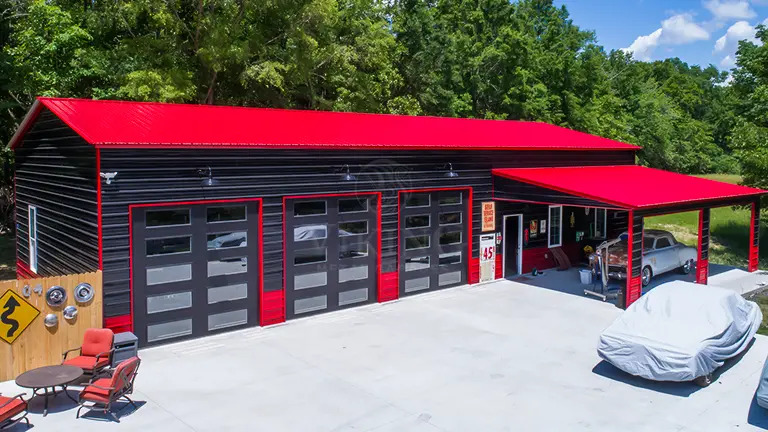In an era where climate change and environmental degradation are pressing issues, the call for a greener planet has never been more urgent. The need to adopt sustainable practices is not just about protecting the earth; it’s about ensuring a livable and thriving environment for future generations.
Understanding Sustainability
Sustainability refers to meeting our own needs without compromising the ability of future generations to meet theirs. It encompasses three interconnected pillars: environmental protection, social equity, and economic viability. At its core, sustainability is about balance—ensuring that human progress does not come at the cost of the planet’s health.
The journey towards a greener world begins with individual awareness and small changes. By gradually adopting sustainable habits, we can collectively drive meaningful change. Let’s explore practical steps to make the world greener.
Simple Steps to Make the World Greener
1. Reduce Energy Consumption
One of the most effective ways to combat climate change is by reducing energy consumption. Here are some practical tips to conserve energy at home:
- Adjust Your Thermostat: Lowering your thermostat by just two degrees in winter and raising it by two degrees in summer can save approximately 2,000 pounds of carbon dioxide annually.
- Switch Off Lights and Electronics: Make it a habit to turn off lights, fans, and unplug electronic devices when they are not in use. Phantom energy consumption—energy used by devices on standby—can add up significantly.
- Use Energy-Efficient Appliances: Invest in energy-saving appliances like LED light bulbs, smart thermostats, and energy-efficient refrigerators, which can significantly cut down electricity use.
- Embrace Natural Light: Take advantage of natural light during the day instead of relying on artificial lighting.
Reducing energy consumption not only benefits the planet but also helps lower utility bills—a win-win for both individuals and the environment.
2. Adopt a Plant-Based Diet
Transitioning to a plant-based diet is one of the most impactful lifestyle changes you can make to reduce your environmental footprint. The production of meat and dairy contributes significantly to greenhouse gas emissions, water usage, and deforestation.
- Reduce Meat Consumption: Even adopting a vegetarian or vegan diet for a few days each week can lower your carbon footprint.
- Explore Alternatives: Incorporate plant-based protein sources such as beans, lentils, tofu, and nuts into your meals.
- Support Plant-Based Brands: Choose sustainable and ethical food products that align with greener living.
A plant-based diet is not only beneficial for the environment but also supports a healthier lifestyle.
3. Embrace Renewable Energy
Fossil fuels are a major contributor to climate change. Transitioning to renewable energy sources like solar, wind, or hydroelectric power is an excellent way to reduce your carbon footprint.
- Install Solar Panels: If feasible, consider installing solar panels at home. Solar energy is clean, renewable, and can significantly reduce electricity costs over time.
- Switch to Green Energy Plans: Many utility companies now offer renewable energy options. Check with your provider for green energy plans.
- Advocate for Clean Energy Policies: Support policies that promote investment in renewable energy infrastructure.
Switching to renewable energy may require an upfront investment, but the long-term environmental and financial benefits are undeniable.
4. Practice Water Conservation
Water is a precious and limited resource, and conserving it is vital to a sustainable future. Simple adjustments in your daily routine can save thousands of gallons of water annually.
- Fix Leaks Promptly: A dripping faucet or running toilet can waste significant amounts of water over time.
- Take Shorter Showers: Reducing shower time by just a few minutes can save gallons of water daily.
- Use Water-Saving Fixtures: Install low-flow showerheads, faucets, and dual-flush toilets to minimize water usage.
- Collect Rainwater: Use rain barrels to collect rainwater for gardening and other non-potable uses.
By adopting water conservation practices, you contribute to addressing global water scarcity.
5. Reduce, Reuse, Recycle
The three R’s—Reduce, Reuse, and Recycle—are essential for minimizing waste and conserving resources.
- Reduce Waste: Minimize single-use plastics by opting for reusable bags, bottles, and containers.
- Reuse Items: Before discarding, consider how items can be repurposed or reused.
- Recycle Properly: Familiarize yourself with local recycling guidelines to ensure that materials like paper, glass, and plastics are disposed of correctly.
By incorporating the three R’s into your daily life, you help reduce landfill waste and resource depletion.
6. Support Local Produce
Buying local produce benefits both the environment and the community. Locally sourced food reduces the carbon footprint associated with transportation and supports small-scale farmers.
- Visit Farmers’ Markets: Shop for fresh, seasonal produce at your local farmers’ market.
- Join a CSA (Community-Supported Agriculture): Support local farms by subscribing to a CSA program.
- Grow Your Own Food: If space allows, start a small garden with herbs, fruits, and vegetables.
Supporting local produce fosters a stronger, healthier food system while reducing environmental impact.
7. Choose Eco-Friendly Transportation
Transportation accounts for a significant portion of greenhouse gas emissions. Opting for sustainable transportation methods can greatly reduce your carbon footprint.
- Walk or Bike: For short distances, consider walking or biking instead of driving.
- Use Public Transit: Trains, buses, and carpooling are eco-friendly alternatives to individual cars.
- Switch to Electric Vehicles (EVs): If purchasing a new car, consider an electric or hybrid model to reduce emissions.
Choosing eco-friendly transportation contributes to cleaner air and a healthier environment.
8. Engage in Community Initiatives
Participating in local environmental initiatives amplifies your positive impact. Communities that come together for a greener purpose inspire lasting change.
- Join Clean-Up Drives: Participate in clean-ups of local parks, beaches, and neighborhoods.
- Plant Trees: Trees absorb CO2, improve air quality, and provide habitats for wildlife. Join tree-planting events in your area.
- Support Environmental Policies: Advocate for sustainable urban planning, green spaces, and renewable energy projects.
Community action has the power to drive significant, large-scale change.
9. Educate Yourself and Others
Knowledge is a powerful tool for driving change. Educate yourself on environmental issues and share this knowledge with friends, family, and your community.
- Stay Informed: Follow reputable sources that focus on sustainability and environmental news.
- Encourage Discussions: Foster conversations about sustainability at home, work, or school.
- Follow Environmental Influencers: Influencers and activists share innovative tips and solutions for greener living.
Inspiring others to adopt sustainable practices multiplies your impact.
10. Follow Influencers That Make the World Greener
Influencers and organizations around the world are championing sustainability by sharing innovative ideas and real-world solutions.
- Get Inspired: Follow sustainability advocates on social media platforms.
- Implement Ideas: Use their practical tips to make eco-friendly changes in your life.
- Join Movements: Many influencers promote global initiatives and challenges that inspire collective action.
The Ripple Effect of Small Changes
Small, consistent actions can lead to meaningful change. While individual efforts may seem insignificant on their own, when multiplied by millions of people worldwide, the results are transformative. Adopting simple practices—from reducing energy and water use to choosing sustainable food and transportation options—creates a ripple effect that benefits the environment, our health, and future generations.
Conclusion
Making the world greener does not require drastic or overwhelming commitments. It’s about integrating simple, practical steps into our daily lives that collectively foster sustainability. By reducing energy consumption, embracing plant-based diets, conserving water, supporting local initiatives, and educating others, we can all contribute to a healthier, greener planet.
Each step, no matter how small, matters. Together, we can create a world where nature thrives, resources are preserved, and future generations inherit a planet worth cherishing.





